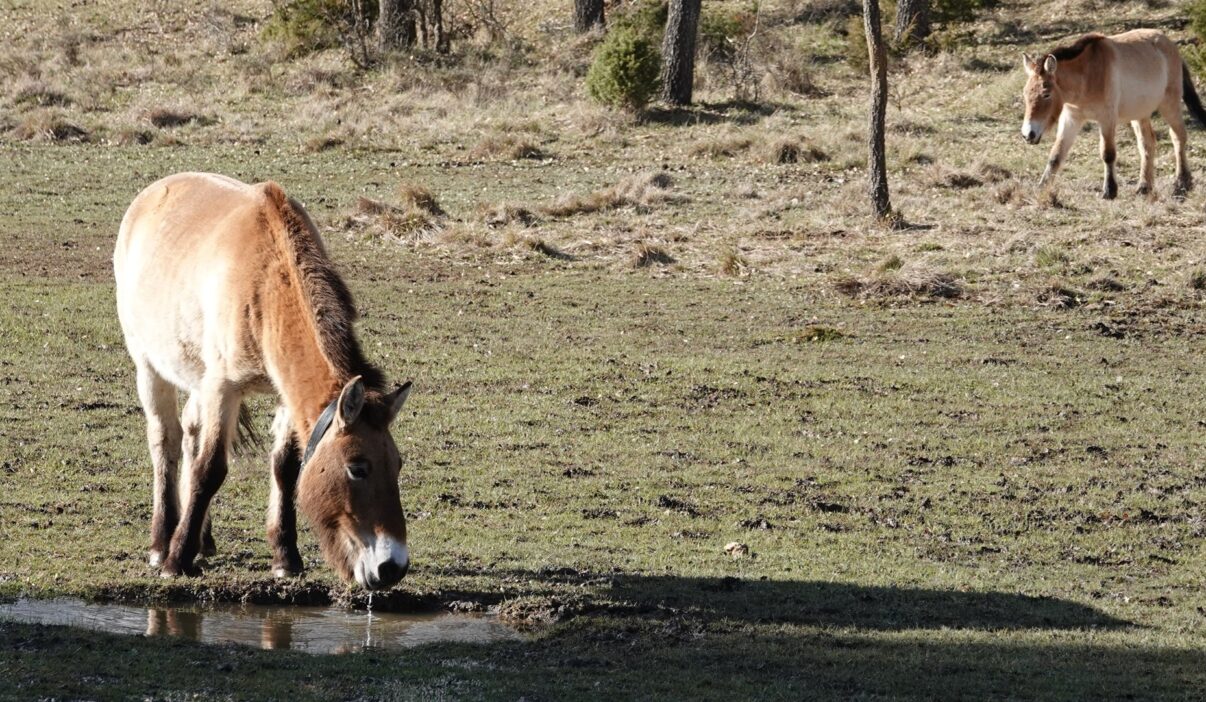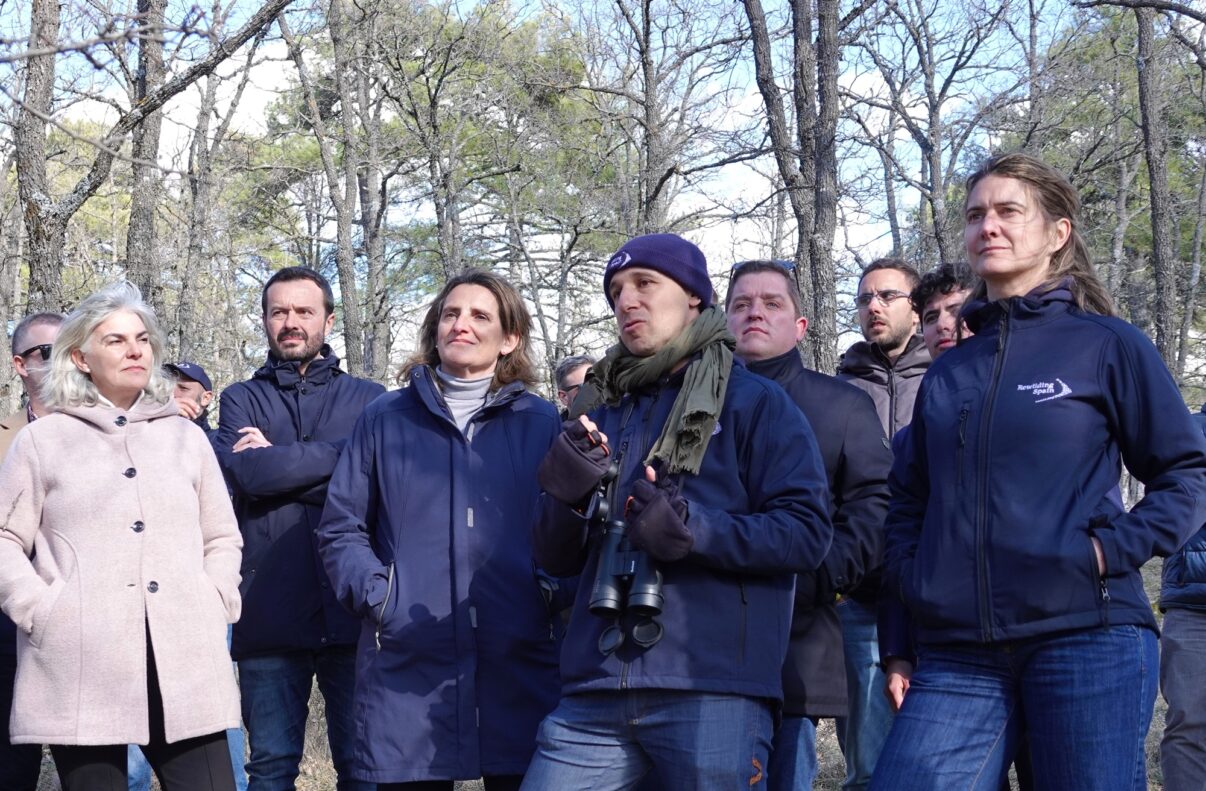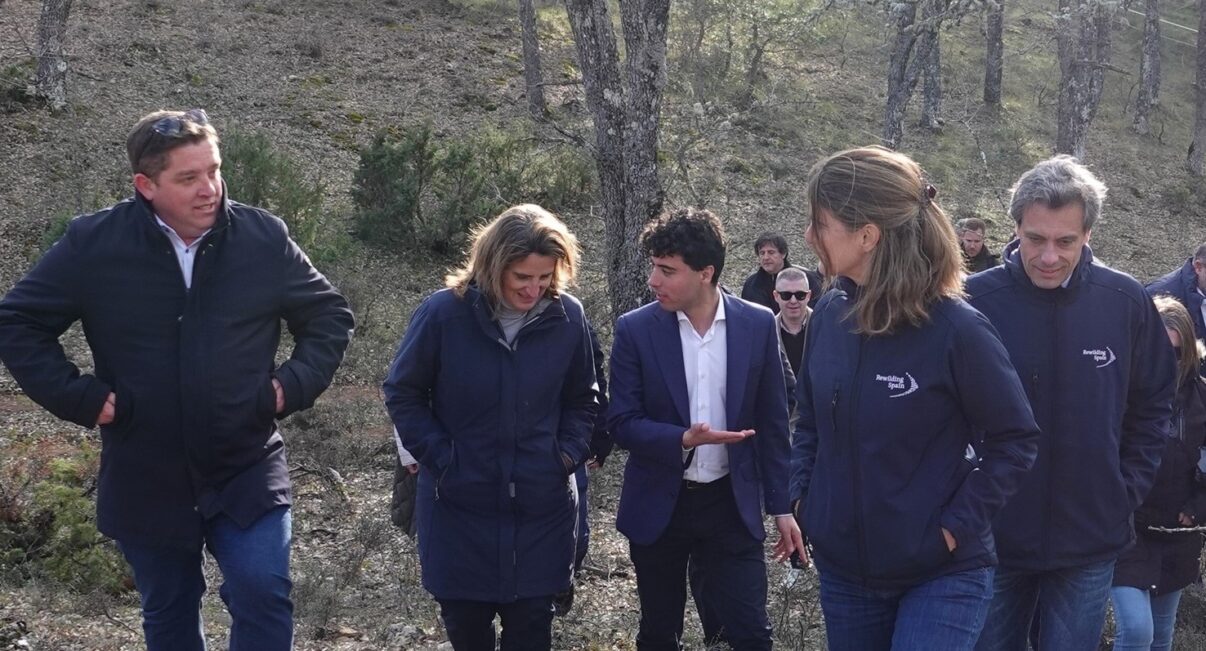By generating healthier natural spaces and encouraging nature to be a lever for socio-economic development, rewilding can also be a powerful tool in the shared mission of addressing depopulation in rural areas.
One of the action lines of the Iberian Highlands rewilding initiative is focused on the socio-economic development of the landscape, a goal that shows an essential criterion in the work of Rewilding Spain: working in favour of ecosystems restoration and nature comeback must have a positive impact on people living in the area. For this reason, Rewilding Spain is supporting nature-based entrepreneurship, ecotourism and the development of initiatives that bring positive visibility to the landscape. So, employment opportunities that maintain population in the area are created and even the return of people who left in search of job opportunities is favoured.

The connection between nature recovery and socio-economic development in the Alto Tajo was one of the topics discussed with the Vice-President of the Spanish Government and Minister of Ecological Transition and Demographic Challenge, Teresa Ribera, during her recent visit to different villages in the Alto Tajo region, that included a meeting with the General Manager of Rewilding Spain, Mara Zamora; Marco Bolognini, trustee of the Foundation, and Pablo Schapira, team leader of the Iberian Highlands rewilding initiative.

As part of this meeting with the minister a visit to the Przewalski’s horses herd that live in the public forest of Villanueva de Alcorón was carried out. This natural grazing rewilding action connects directly with the objective of curbing depopulation. The arrival of these horses to the municipality has meant the creation of two direct jobs by Rewilding Spain, thanks to which two residents of the municipality joined the team last year.
The natural grazing of Przewalski’s horses fulfills an ecological function similar to the traditional extensive livestock farming, now in decline, by opening up spaces in the forest and eliminating biomass that is the fuel for potential wildfires. In addition, the presence of these animals enhances biodiversity and improves the health of the forest. And not less important, as this is an endangered subspecies, the presence of Przewalski’s horses in Villanueva de Alcorón provides the municipalities of the Alto Tajo region with relevant visibility in the field of conservation and makes them a focus of interest for nature lovers. In fact, Rewilding Spain is already partnering with some local ecotourism companies, such as Atecotour, Sentir el Alto Tajo and Vivewuada, for the implementation of guided tours to watch the horses.

Dialogue between all the stakeholders involved is a key element so that rewilding actions such as this can contribute to the shared goal of creating opportunities that stop depopulation. Rewilding Spain’s participation in this visit was possible thanks to the invitation from the Alto Tajo municipalities (Arbeteta, Armallones, Peñalén, Peralveche, Poveda de la Sierra, El Recuenco, Villanueva de Alcorón and Zaorejas), headed by the mayor of El Recuenco, Enrique Collada, and also from the Castilla-La Mancha regional government, whose vice-president, José Luis Martínez, also took part in the meeting.
